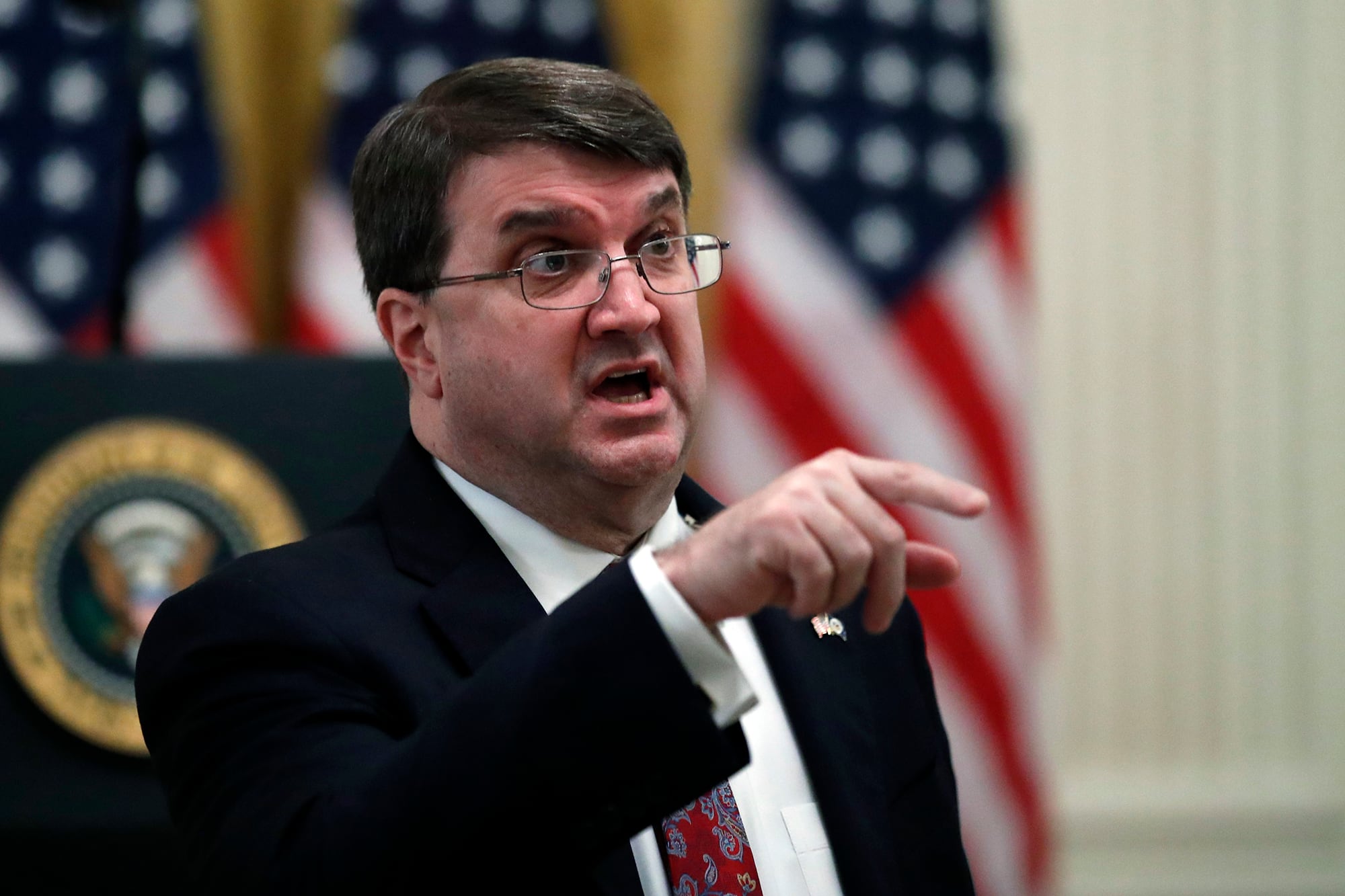Former Veterans Affairs Secretary Robert Wilkie on Tuesday criticized the current veterans benefits system in America as being too focused on providing financial rewards to ailing individuals instead of helping them move past those challenges to post-military success.
“We’re focused on getting veterans checks and not getting them well and getting them back into society,” he said during an American University event on Tuesday.
“The purpose of VA is to care for those .. who have suffered as a direct result of their military service. In my experience, the encouragement of many of the [support] groups give to people coming out of the service, it’s almost as if they encourage them to play disability. And it is incredibly destructive to the system.”
He suggested that the list of injuries and illnesses making veterans eligible for financial support may be too expansive, with issues that are more attributable to aging than military deployments. That in turn encourages veterans to seek payouts from VA instead of finding ways to work and integrate into civilian life.
The comments came during a roundtable discussion with Daniel Gade, retired U.S. Army lieutenant colonel and a former Virginia Senate candidate, about his new book on the Veterans Affairs system. The volume is titled “Wounding Warriors: How Bad Policy is Making America’s Veterans Sicker and Poorer.”
RELATED

About 40 percent of all post-9/11 veterans have some type of service-connected disability, as compared to about 26 percent of all veterans in America today, according to estimates from the Department of Labor.
Wilkie, who served as the head of Veterans Affairs for almost three years under President Donald Trump, described the department as “incredibly resistant to reform” and blasted veterans lobbyists as worsening the problem with their viewpoints of always expanding benefits and services, rather than catering to veterans with specific military-related needs.
“We put those who hold the Purple Heart in the front line when it came to compensation and compensation decisions,” he said. “The howls from the professional class were deafening, as was the response from many in Congress, because they believe that anyone who’s put on a uniform should be treated just like all the others.
“That is a disconnect that we as a nation have to have to address.”
Wilkie said his work running the department helped reform some of those practices, but not enough.
Gade, a White House staffer during President George W. Bush’s administration, said his book is designed to broach conversations about sweeping reforms within the veterans disability process, including the idea that veterans should get compensation or treatment for ailments that do not have a direct, immediate link to military wounds.
“We pay veterans to be sick, and then we wonder why we have so many sick veterans,” he said.
The two men’s comments came at the same time that current VA Secretary Denis McDonough delivered the annual “State of the VA” address ahead of the Veterans Day holiday. In it, McDonough vowed that “no [veteran] is going to have to fight to get the quality care, benefits and services that they earned.”
RELATED

Veterans Affairs officials processed more than 1 million disability claims last fiscal year, setting a new case record, but have seen a growing backlog of overdue claims decisions as pandemic delays and new eligibility rules have increased staff workload.
Wilkie said improvements can’t be made without fundamental changes in how veterans groups and lawmakers view the system. But he also took aim at “the lobbyists in Washington” focused on veterans issues for being an obstacle to reform rather than allies.
Most of those veterans groups called for Wilkie’s resignation during his final weeks in office, after a series of internal investigations found he mishandled sexual assault claims filed by a congressional staffer who was visiting the Washington, D.C. VA Medical Center.
Leo covers Congress, Veterans Affairs and the White House for Military Times. He has covered Washington, D.C. since 2004, focusing on military personnel and veterans policies. His work has earned numerous honors, including a 2009 Polk award, a 2010 National Headliner Award, the IAVA Leadership in Journalism award and the VFW News Media award.




